Shows

Wired Axcess All Axcess GrantedFuture Husker OL Matt Erickson Talks Pressure, Legacy & the ’27 Class | All Axcess Granted #nebpreps #husker #gbr Episode 19 of Wired Axcess: All Axcess Granted – Raw & Real brings fans inside the journey of Millard North ’27 offensive lineman Matt Erickson, a Nebraska Cornhuskers commit and one of the top #NEBPreps prospects in the state. Hosted by DJ K DuB Omaha and Streamyard powered by Omaha Beef Football, this episode goes beyond recruiting headlines. We talk about Matt’s upbringing, the pressure of being a former Husker’s son, how today’s ’27 class approaches leadership differently, and what it truly means to be a future Husker. Watch the full episode live or on demand Find this ep...
2025-12-2241 min
Reformed ThinkingFinal Reflections on the Task of TheologyDeep Dive into Christian Theology by Millard J. Erickson - Concluding ThoughtsThe concluding thoughts of Millard Erickson emphasize that abstract ideas are the primary driving force of history. Just as political and scientific concepts have reshaped the modern world, Christian theological doctrines—specifically the Incarnation—have acted as the catalyst for establishing major humanitarian institutions like schools and hospitals. Consequently, right belief is imperative, as a person's specific doctrinal understanding dictates the nature and spirit of their daily lifestyle.However, the text warns that intellectual accuracy is insufficient on its own. Poss...
2025-12-1128 min
Reformed ThinkingFinal StatesDeep Dive into Christian Theology by Millard J. Erickson - Final StatesThe final states of humanity, determined by decisions made in this present life, lead either to eternal blessedness in heaven or eternal punishment in hell.Heaven's fundamental nature is the presence of God, a condition from which all blessings flow. Heaven is primarily understood as a spiritual state of completion, rather than a particular physical location, marked by perfect knowledge, glory, and the removal of all evils, including pain, mourning, and sin. The distinguishing mark of heaven is its condition...
2025-12-0731 min
Reformed ThinkingMillennial and Tribulational ViewsDeep Dive into Christian Theology by Millard J. Erickson -Millennial and Tribulational ViewsChristian eschatology involves three main millennial views concerning the earthly reign of Christ: Premillennialism, Postmillennialism, and Amillennialism.Premillennialism holds that the Second Coming of Christ will precede and inaugurate a future, literal, thousand-year earthly reign. This view insists on a literal and consistent interpretation of Revelation 20, arguing that the two resurrections mentioned must both be physical events separated by the millennium. Premillennialists agree that the millennium will be preceded by the Great Tribulation, a time when world conditions will...
2025-12-0333 min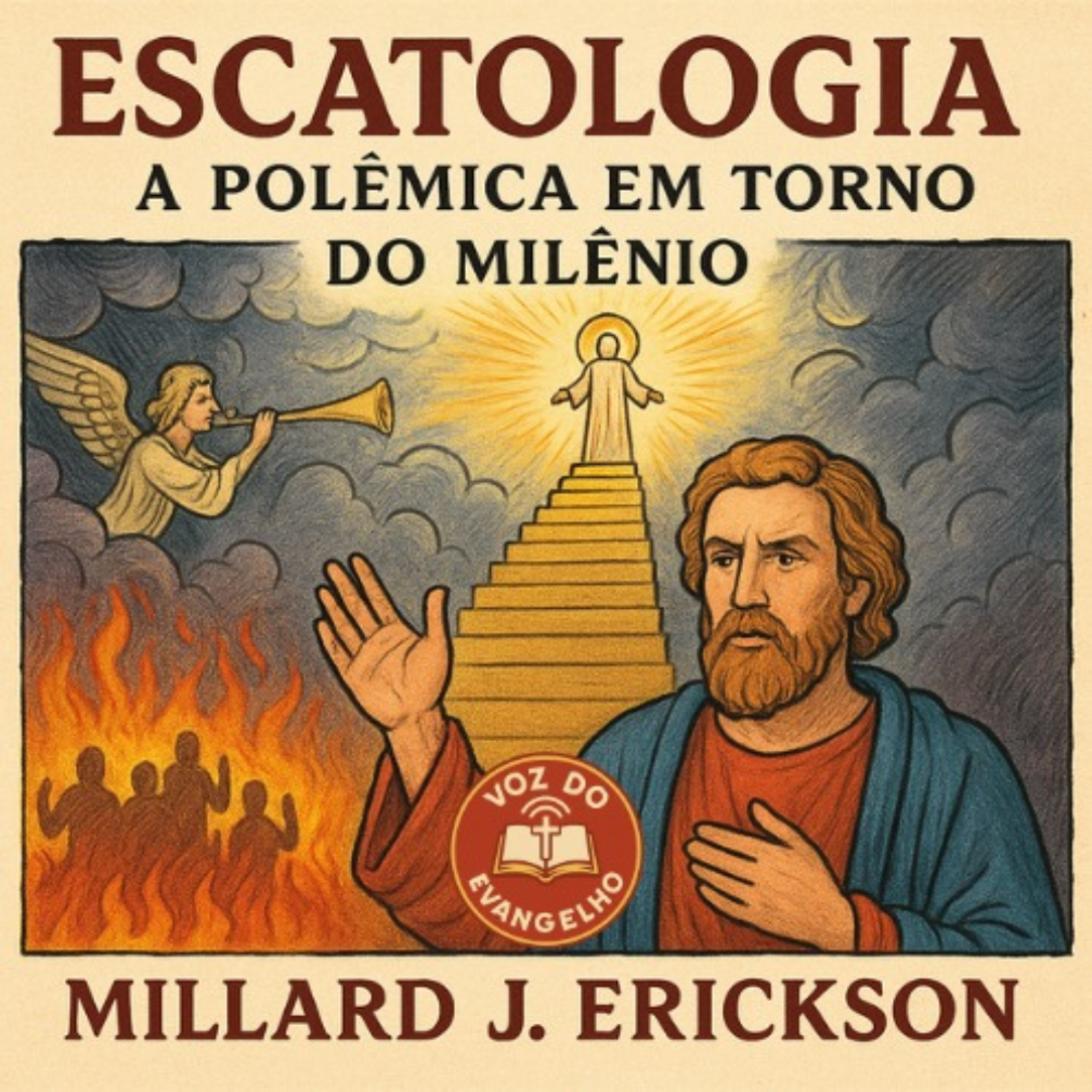
Voz do EvangelhoEscatologia. A Polêmica em Torno do Milênio: Millard J. EricksonO texto apresenta trechos de um livro de teologia sistemática, intitulado "Escatologia: A Polêmica em Torno do Milênio", de Millard J. Erickson, que explora conceitos escatológicos cristãos. A obra detalha e avalia criticamente quatro visões contemporâneas sobre o fim dos tempos: escatologia consistente, realizada, existencial e a teologia da esperança. Além disso, o livro dedica capítulos extensos a três principais modelos milenistas—pós-milenismo, amilenismo e pré-milenismo—junto com suas subdivisões tribulacionistas, como o dispensacionalismo, pré-tribulacionismo e pós-tribulacionismo. A análise de cada posição inclui seu panorama h...
2025-11-1021 min
Reformed ThinkingIntroduction to EschatologyDeep Dive into Christian Theology by Millard J. Erickson - Introduction to EschatologyEschatology, traditionally concerned with the "last things" and the future consummation of history, has been radically redefined by modern theology. Six primary approaches emerged in reaction to the conventional view of the Kingdom of God as a dramatic, future earthly reign.The Liberal Approach, or Modernized Eschatology, exemplified by figures like Adolf von Harnack (who emphasized God’s fatherhood) and Albrecht Ritschl, rejects supernatural future events, viewing the Second Coming as a prescientific "husk." The true meaning (the "kernel") is...
2025-11-0936 min
Reformed ThinkingThe Continuing Rite of the Church: The Lord's SupperDeep Dive into Christian Theology by Millard J. Erickson - The Continuing Rite of the Church: The Lord's SupperThe Lord’s Supper is a vital rite, considered the continuing practice of the visible church, instituted by Jesus Christ himself. Christian groups agree on six foundational points, including the necessity of repetition of the rite until Christ’s second coming, its function as a proclamation of His atoning death, and its role in conferring spiritual benefit upon the believer. Participation is uniformly restricted to genuine followers of Christ who have engaged in rigorous self-examination to e...
2025-10-2726 min
Reformed ThinkingThe Continuation of SalvationDeep Dive into Christian Theology by Millard J. Erickson - The Continuation of SalvationSanctification is the continuing, supernatural work of God in the life of a believer, making them actually holy by bringing their moral condition into conformity with their legal standing before God. The primary aim of this divine activity is the believer's likeness to Christ, meaning they are to be conformed to the image of his Son. The ultimate, final goal is leading a sinless life, although this standard is generally not realized in this life.Sanctification is accomplished...
2025-10-1334 min
Reformed ThinkingThe Initiatory Rite of the Church: BaptismDeep Dive into Christian Theology by Millard J. Erickson - The Initiatory Rite of the Church: BaptismThere are four basic theological views concerning baptism, which differ primarily on what the rite accomplishes: Baptism as a Means of Saving Grace, Baptism as a Sign and Seal of the Covenant, Baptism as a Token of Salvation, and Baptism as the Occasion of Salvation.The first view, held by sacramentalists like traditional Catholics and Lutherans, believes that salvation comes through baptism. This involves baptismal regeneration, where the act conveys grace, remitting sins and bringing...
2025-10-0442 min
Exegese & ExposiçãoAULA | A ANTROPOLOGIA BÍBLICA EM MILLARD ERICKSONObrigado por acessar o meu Canal!Aqui você encontrará podcasts com informações sobre exegese bíblica que mudarão sua vida cristã.# Não clique aqui: https://bit.ly/383Dr57## Adquira a Teologia Sistemática de Millard Ericksonhttps://amzn.to/3VxsAv3Ouça novos podcasts Exegese & Exposição, exegese on-demand para você, em seu agregador preferido ou no YouTube.Grupo EXCLUSIVO do Telegram, com muitos materiais para seus estudos exegéticos: Exegese & Exposição - Materiais
2025-09-121h 19
Reformed ThinkingThe Government and Unity of the ChurchDeep Dive into Christian Theology by Millard J. Erickson - The Government and Unity of the ChurchChurch governance generally falls into four basic forms: episcopal, presbyterian, congregational, and nongovernmental, ranging from highly structured to minimally organized.The episcopal system places authority primarily in the office of the bishop, who governs groups of churches and ordains ministers. This hierarchical structure, from the Methodist Church to the highly complex Roman Catholic Church with the Pope's supreme authority, often emphasizes apostolic succession.In contrast, presbyterian government vests authority in a series...
2025-09-101h 02
KDAV RadioStand to Reason Weekly Podcast - It’s Okay to Quote a Single Verse...If You Understand the ContextGreg answers questions about whether it’s okay to quote a single verse, why Jesus didn’t heal everyone, recommended study Bibles and commentaries, persevering with someone who isn’t responding well, and whether couples should agree on secondary and tertiary issues.
Topics:
Commentary: It’s okay to quote a single verse...if you understand the context. (00:00)
How many lepers and blind people did Jesus not heal, and why? (16:00)
Which study Bible and commentary would you most recommend? (25:00)
Should I keep trying to talk to someone who isn’t responding well? (38:00)
Should a couple agree on every secondary and tertiary theological is...
2025-09-1058 min
Stand to Reason Weekly PodcastIt’s Okay to Quote a Single Verse...If You Understand the ContextGreg answers questions about whether it’s okay to quote a single verse, why Jesus didn’t heal everyone, recommended study Bibles and commentaries, persevering with someone who isn’t responding well, and whether couples should agree on secondary and tertiary issues.
Topics:
Commentary: It’s okay to quote a single verse...if you understand the context. (00:00)
How many lepers and blind people did Jesus not heal, and why? (16:00)
Which study Bible and commentary would you most recommend? (25:00)
Should I keep trying to talk to someone who isn’t responding well? (38:00)
Should a couple agree on every secondary and tertiary theological is...
2025-09-1058 min
Reformed ThinkingDeep Dive into Christian Theology by Millard J. Erickson - The Role of the ChurchThe edification of believers is a primary function of the church, designed to directly benefit and build up its members. While worship focuses on God, edification concentrates on the spiritual growth of believers, a process Paul frequently emphasized for the body of Christ. It involves mutual upbuilding by all members, not just ministers, and serves as a criterion for all church activities.The church facilitates edification through several key means:Fellowship (koinōnia): This involves sharing experiences, which lessens hurt and increases joy. Believers are encouraged to support, sympathize, and bear one another's burdens. This also i...
2025-08-1925 min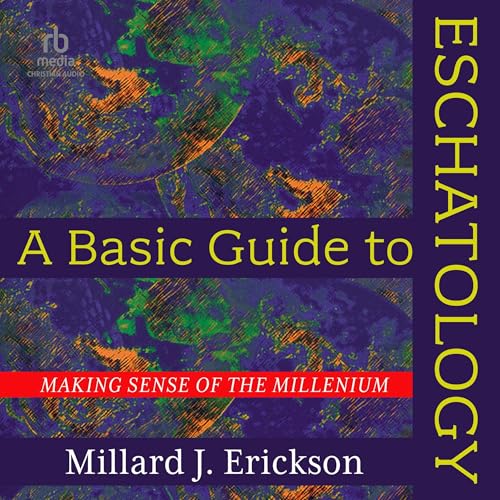
Embark On An Breakthrough Full Audiobook And Elevate Your Mindset.A Basic Guide to Eschatology by Millard J. EricksonPlease visithttps://thebookvoice.com/podcasts/2/audible/266652to listen full audiobooks.
Title: A Basic Guide to Eschatology
Author: Millard J. Erickson
Narrator: Bob Souer
Format: mp3
Length: 5 hrs and 54 mins
Release date: 08-12-25
Ratings: Not rated yet
Genres: Theology
Publisher's Summary:
A leading evangelical theologian provides a comprehensive examination of the various evangelical views of the millennium (and other eschatological subjects).
2025-08-125h 54
Reformed ThinkingDeep Dive into Christian Theology by Millard J. Erickson - The Nature of the ChurchThe church, though frequently misunderstood, is fundamentally a divinely established institution, with its true nature best understood through a biblical-philological method that focuses on its scriptural essence rather than merely its observable activities.Paul's writings present a Trinitarian understanding of the church through three key images. As the People of God, it emphasizes God’s sovereign choice of both Jews and Gentiles under the new covenant, requiring inward spiritual transformation. As the Body of Christ, the church is the locus of Christ's ongoing activity in the world, highlighting believers' profound union with Him as their head and th...
2025-08-0641 min
Reformed ThinkingDeep Dive into Christian Theology by Millard J. Erickson - The Means and Extent of SalvationThe evangelical view of salvation stands as a distinct theological perspective, contrasting sharply with sacramentalism and liberation theology. At its core, it emphasizes the indispensable role of the Word of God and the acceptance of salvation through faith.The Word of God, whether preached or read, is understood as God’s primary means of presenting salvation in Christ. It is described with powerful images—a hammer, a mirror, a seed—illustrating its capacity to break hard hearts, reveal truth, and initiate new life. Crucially, it's not merely the Bible itself, but the Word as applied by the Holy S...
2025-08-0529 min
Reformed ThinkingDeep Dive into Christian Theology by Millard J. Erickson - What is Theology?Systematic theology is a discipline of study within a Christian context that aims to provide a coherent and comprehensive understanding of the Christian faith. It seeks to articulate the doctrines of Christianity, primarily based on the Scriptures, and present them in a way that is relevant to contemporary culture and life. Fundamentally, it is the study or science of God, encompassing His works, His creation (especially human beings and their condition), and His redemptive work in relation to humankind.This comprehensive task is defined by five key aspects:It is biblical, meaning it takes the canonical...
2025-08-0454 min
Reformed ThinkingDeep Dive into Christian Theology by Millard J. Erickson - The Completion of SalvationThe completion of Christian salvation is understood through two key doctrines: perseverance and glorification. Perseverance addresses whether a genuinely saved believer will remain in faith throughout their life, emphasizing God's enabling power and the believer's active demonstration of Christ-likeness. This doctrine is crucial for a believer's security and motivation.The Calvinist view on perseverance asserts that true believers cannot totally or finally fall away from grace and are eternally secure, supported by biblical promises of indestructible salvation, God's persistent love, and Christ's direct assurances that His sheep will never perish. Conversely, the Arminian view contends that falling...
2025-08-0436 min
Reformed ThinkingDeep Dive into Christian Theology by Millard J. Erickson - The Continuation of SalvationSanctification is God's continuing work in believers, actively making them actually holy and conforming them to the image of Christ. This transformative process differs from justification: justification is an instantaneous legal declaration of righteousness, while sanctification is a progressive, subjective transformation of character that continues throughout life. While complete sinlessness is an ideal to strive for, it is generally considered unlikely for believers to attain it fully in this earthly life, emphasizing an ongoing reliance on grace rather than complacency.The Holy Spirit plays a central and indispensable role in sanctification. It is His special, volitional work...
2025-08-0233 min
Reformed ThinkingDeep Dive into Christian Theology by Millard J. Erickson - The Beginning of Salvation: Objective AspectsChristian theology identifies three essential objective aspects of salvation: Union with Christ, Justification, and Adoption. These concepts define a believer's status and standing before God.Union with Christ is a foundational and inclusive concept for all of salvation, signifying an intimate, mutual relationship between Christ and the believer, akin to marriage. It is a profound mystery and is characterized as judicial, spiritual, and vital. Judicially, God sees believers in union with Christ and declares them righteous. Spiritually, it is effected by the Holy Spirit and involves a union of spirits, producing new vitality. Vitally, Christ's life flows...
2025-08-0148 min
Reformed ThinkingDeep Dive into Christian Theology by Millard J. Erickson - The Beginning of Salvation: Subjective AspectsThe beginning of Christian salvation involves three interconnected steps: effectual calling, conversion, and regeneration. These are subjective aspects, focusing on an individual's inward spiritual transformation.Effectual calling is God's initial, special, and effective work with the elect. Because human nature is spiritually dead and unable to believe on its own, God intervenes through the Holy Spirit's illumination and conviction, enabling and ensuring a positive response of repentance and faith. This divine initiative makes conversion both possible and certain.Conversion is the human response to this effectual calling, marking the first step of the Christian life...
2025-08-0135 min
Reformed ThinkingDeep Dive into Christian Theology by Millard J. Erickson - The Antecedent to Salvation: PredestinationThe doctrine of predestination refers to God’s choice of individuals for eternal life or eternal death, a concept distinct from broader divine "foreordination" of all events. This complex doctrine gained prominence with Augustine, who emphasized human inability due to Adam's sin and God's unconditional, irresistible grace. Pelagius countered, asserting human free will and that God's predestination is based on His foreknowledge of human merit.The Reformation saw a resurgence of Augustinian thought with Martin Luther and John Calvin. Calvinism is summarized by TULIP: Total Depravity (humans utterly unable to respond to grace), Unconditional Election (God's choice fo...
2025-07-3152 min
Reformed ThinkingDeep Dive into Christian Theology by Millard J. Erickson - Conceptions of SalvationSecular theology offers a distinct view of salvation, fundamentally rejecting the traditional understanding that salvation involves removal from the world and supernatural grace from God. It emerged in the twentieth century as cultural views on God's role shifted due to scientific explanations and humanity's growing ability to solve its own problems, leading to a pragmatic, secular lifestyle where God has no practical place.Theologians like Dietrich Bonhoeffer interpreted this shift as humanity's "coming of age," suggesting it's God's way of educating humans to be independent of Him. Bonhoeffer believed that God is present within "irreligion," and that...
2025-07-3046 min
Reformed ThinkingDeep Dive into Christian Theology by Millard J. Erickson - Recent Issues regarding the Holy SpiritRecent theological discussions on the Holy Spirit have seen a resurgence of interest, often influenced by postmodernism's emphasis on subjective experience. This has led to diverse interpretations regarding prophecy, science, other world religions, and other spiritual entities.One area is the continuation of prophecy today. Advocates distinguish modern prophecy from Old Testament prophecy, stating it is not equal in authority to Scripture and is imperfect, requiring testing. Wayne Grudem describes it as God laying something on one's heart, while Jack Deere emphasizes dreams, visions, and direct experience. Critics point to a lack of clear biblical evidence for...
2025-07-2932 min
Reformed ThinkingDeep Dive into Christian Theology by Millard J. Erickson - The Work of the Holy SpiritThe Holy Spirit, often called "the Spirit of God" in the Old Testament, has a diverse and pervasive role in God's activity across all eras, from creation to the present day.In the Old Testament, the Spirit was active in creation, "hovering over the waters," and in giving prophecy and Scripture, carrying prophets along to speak God's word. He also endowed individuals with necessary skills for tasks like building the tabernacle and empowered administration and leadership for figures like Joseph, Moses's elders, and judges such as Othniel and Gideon. Beyond dramatic events, the Spirit produced moral and...
2025-07-2824 min
Reformed ThinkingDeep Dive into Christian Theology by Millard J. Erickson - The Person of the Holy SpiritThe historical doctrine of the Holy Spirit has developed at varying rates, often provoked by controversy, leading to fuller elaborations over time. In the earliest church (1st-2nd centuries), little was explicitly stated, with an early emphasis on the Spirit as the guiding force producing the Bible. There was a growing recognition of the Spirit's divinity, though some viewed him as merely grace or an attribute.The fourth and fifth centuries saw a major shift, largely as a by-product of Christological debates. Athanasius vigorously insisted on the Spirit's full divinity and consubstantiality with the Father and Son...
2025-07-2735 min
Reformed ThinkingDeep Dive into Christian Theology by Millard J. Erickson - The Extent of the AtonementThe resolution of atonement theories centers on two main questions: "For whom did Christ die?" and "For what did Christ atone?"Regarding the extent of Christ's death, two primary views contend. Particular Atonement, often embraced by Calvinists, argues that Christ died exclusively for the elect, thereby guaranteeing their salvation. They emphasize scriptures speaking of Christ dying "for his people" or "his sheep," and infer from his limited intercessory prayer in John 17:9 that his atoning sacrifice was similarly confined. Conversely, Universal Atonement maintains that Christ died for all humanity, making salvation possible for anyone who accepts it. Proponents...
2025-07-2638 min
Reformed ThinkingDeep Dive into Christian Theology by Millard J. Erickson - The Central Theme of the AtonementAtonement is a fundamental Christian doctrine explaining how humanity's sin is reconciled with God through Jesus Christ's death. It centers on four core elements: sacrifice, propitiation, substitution, and reconciliation. The penal substitution theory provides the most comprehensive understanding of this work.The need for atonement stems from God's perfect and complete holiness, which finds sin utterly repulsive, and humanity's total depravity, making self-salvation impossible. God's moral law reflects His very nature, and disobeying it is an attack on God Himself, leading to inevitable punishment and death.Jesus Christ, being both God and human, possessed infinite...
2025-07-2628 min
Reformed ThinkingDeep Dive into Christian Theology by Millard J. Erickson - Thories of the AtonementThe Governmental Theory of atonement, primarily developed by Hugo Grotius, a lawyer by training, posits a unique understanding of how God deals with sin. This theory views God as a holy and righteous ruler who has established moral laws. Sin is understood as a serious violation of these laws, inherently deserving punishment.However, God's dominant attribute of love allows Him to forgive sin. The central challenge addressed by this theory is how God can forgive without undermining the authority of His moral government or encouraging antinomianism (a disregard for moral law).According to Grotius, Christ's...
2025-07-0742 min
Reformed ThinkingDeep Dive into Christian Theology by Millard J. Erickson - Introduction to the Work of ChristChrist's ascension holds profound significance as the second pivotal step in his exaltation, following his resurrection. It marked his departure from earthly conditions and his glorious reassumption of his rightful place with God the Father. This event was not merely a physical upward movement; it involved a transformative change of state to a different dimension of reality, completing the metamorphosis of his body that began with his resurrection.One key significance is that Jesus left behind the limitations and suffering associated with earthly life, including physical and psychological pain, opposition, hostility, unbelief, and unfaithfulness. In heaven, these...
2025-06-2829 min
Faithfullyliven:the podcastDialogues with God: Trusting His Plan in the Trials of LifeSend us a textEver wondered how to navigate your faith amidst the chaos and confusion of life? Join us as we unpack the powerful story of the Old Testament prophet Habakkuk, a man who dared to question God's tolerance of evil and His use of the wicked Babylonians as instruments of punishment. Through Habakkuk's honest dialogue with God, we explore the profound lessons on trust and faith, even when circumstances are bewildering. You'll discover how to bring your deepest concerns to God and find solace in His sovereign plans and divine patience.References...
2025-06-2117 min
Reformed ThinkingDeep Dive into Christian Theology by Millard J. Erickson - The Virgin BirthThe "virgin birth" in Christian theology, more accurately termed "virginal conception," refers to Jesus's conception in Mary's womb without sexual intercourse, through the supernatural influence of the Holy Spirit, with Mary remaining a virgin until his birth. It does not imply an abnormal physical birth process.This doctrine is highly debated, second only to the resurrection. It is significant because it serves as a crucial test of belief in the supernatural and God's direct intervention in the world. For fundamentalists in the late 19th and early 20th centuries, it was a guarantee of Christ's qualitative uniqueness and...
2025-06-1638 min
Reformed ThinkingDeep Dive into Christian Theology by Millard J. Erickson - The Unity of the Person of ChristThe doctrine of the unity of Jesus Christ's divine and human natures in one person is a large and crucial theological issue with extensive implications for Christian theology. It's considered one of the most difficult problems in Christian thought. Its importance lies in the efficacy of redemption; the successful bridging of the gap between God and humanity depended upon Jesus being a unified God-man. For his atoning sacrifice to have infinite value, it must be the work of the divine Christ, and to avail for humankind, the work of the human Jesus; only a unified person can accomplish this...
2025-06-0936 min
Reformed ThinkingDeep Dive into Christian Theology by Millard J. Erickson - The Humanity of ChristUnderstanding Christ's humanity is considered vitally important for Christian salvation and faith, historically posing a significant challenge to orthodox belief when denied or diminished.The primary reason is that salvation fundamentally depends on it. The sources explain that humanity is separated from God by an ontological and moral gap due to sin. This gap is bridged through the incarnation, where deity and humanity are united in one person. If Jesus was not truly human, genuinely "one of us," then humanity was not united with deity in him, and salvation cannot occur. His atoning sacrifice is effective for...
2025-06-0641 min
Reformed ThinkingDeep Dive into Christian Theology by Millard J. Erickson - The Deity of ChristUnderstanding the deity of Jesus Christ is presented as a central and crucial topic in Christian faith, resting on the belief that Jesus is actually God in human flesh. This is considered foundational, differentiating it from views that portray him as merely an extraordinary human.The sources provide extensive biblical support for this doctrine. Although Jesus didn't always make overt claims like "I am God," he made statements and claimed prerogatives appropriate only for God, such as the authority to forgive sins and judge the world. His use of titles like "Son of Man" and "Son of...
2025-06-0215 min
Reformed ThinkingDeep Dive into Christian Theology by Millard J. Erickson - Contemporary Issues in Christological MethodBased on the sources, Christology, the study of Jesus Christ, faces certain perennial problems that reappear across different historical periods. Unlike specific issues tied to a single point in time, these are ongoing challenges concerning the fundamental methodology and nature of understanding Christ.Three major contemporary issues are identified as these perennial problems:First is the relationship between faith and history. This asks whether a proper understanding of Christ must stem from historical investigation and reason, or if it is primarily based on faith in the church's proclamation, the kerygma. Approaches like Christology from Above...
2025-05-3116 min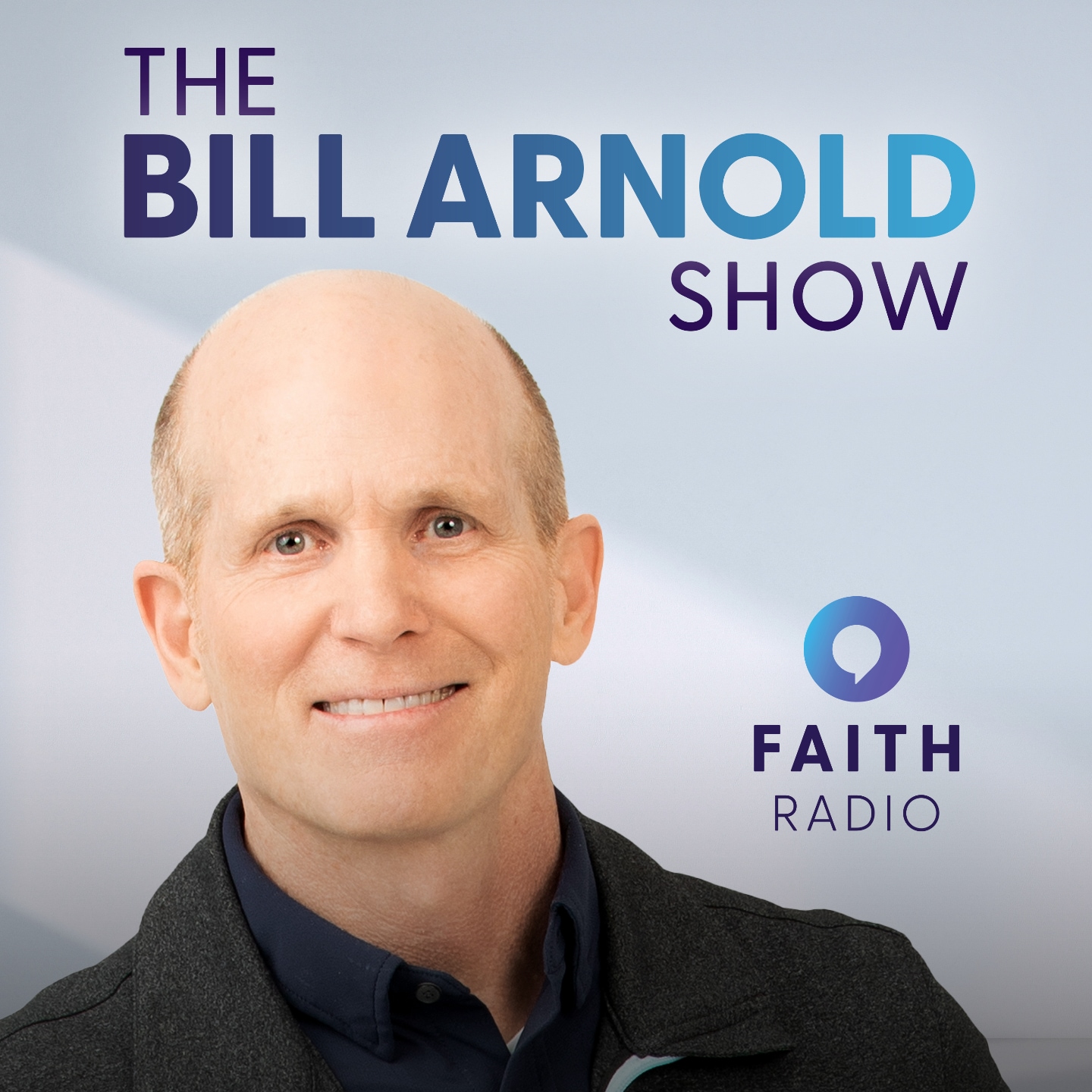
The Bill Arnold ShowAnswering important theological questions – Millard EricksonThere seems to be no end of theological questions about the Christian faith. Theologian Millard Erickson and author of "Introducing Christian Doctrine" joins the show to discuss the Lord being the source of truth, Phillipians 3:10, Matthew 13:1-17, what sin is, if God gives us more than we can handle, breaking strongholds after coming to faith in Christ, and much more. Faith Radio podcasts are made possible by your support. Give now
2025-05-2150 min
The Bill Arnold ShowAnswering important theological questions – Millard EricksonThere seems to be no end of theological questions about the Christian faith. Theologian Millard Erickson and author of "Introducing Christian Doctrine" joins the show to discuss the Lord being the source of truth, Phillipians 3:10, Matthew 13:1-17, what sin is, if God gives us more than we can handle, breaking strongholds after coming to faith in Christ, and much more. Faith Radio podcasts are made possible by your support. Give now
2025-05-2150 min
The Bill Arnold ShowAnswering big theological questions – Millard EricksonTheologian Millard Erickson and author of "Introducing Christian Doctrine" joins the show as he answers how we hold on to God's promises during our suffering, discusses the seven things that are detestable to God, shares the importance of being there for people in need, and more. Faith Radio podcasts are made possible by your support. Give now *This conversation originally took place on January 27, 2025
2025-04-0350 min
The Bill Arnold ShowAnswering big theological questions – Millard EricksonTheologian Millard Erickson and author of "Introducing Christian Doctrine" joins the show as he answers how we hold on to God's promises during our suffering, discusses the seven things that are detestable to God, shares the importance of being there for people in need, and more. Faith Radio podcasts are made possible by your support. Give now *This conversation originally took place on January 27, 2025
2025-04-0350 min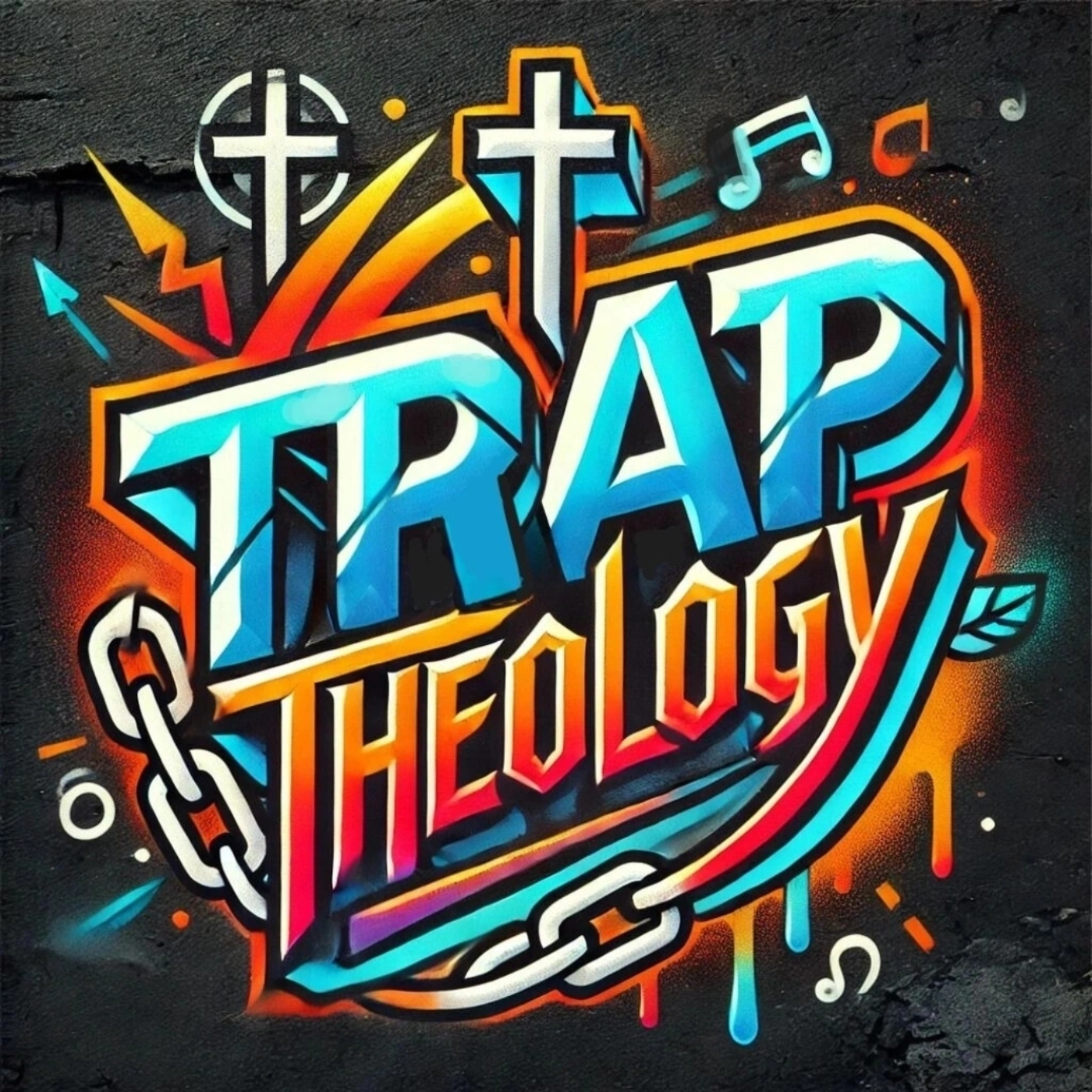
Trap TheologyEpisode 20: From Pews to Purpose: How to Use Your Gifts for God's GloryIn Episode 20 of "Trap Theology," host Jason discusses spiritual growth, the importance of using one's gifts for God's glory, and the role of the Holy Spirit in believers' lives. He emphasizes prioritizing God's kingdom and fulfilling one's purpose, urging listeners to reflect on their talents and opportunities. Jason highlights the need to serve others with the gifts given by the Holy Spirit, referencing biblical teachings. The episode includes a segment on theological lyrics from Canton Jones' song "Worshiper" and concludes with a prayer for listeners to discover and use their gifts for God's work.If...
2025-04-0124 min
Foundations MediaEP 29 | The RantSend us a text
Join us on Episode 29 of the Pastor | Scholar Podcast as we we tackle some of the most pressing issues facing the Church today—from the rise of women pastors to the dangers of Christian celebrity culture. Should seminary education be required for preachers? Are mass baptisms truly honoring the Lord's ordinance? How should believers conduct themselves online? These and more on this special edition episode.
Book Recommendations Mentioned In This Episode
Dr. Cory Marsh's Recommendations
Celebrities for Jesus by Katelyn Beaty - https://a.co/d/2XSW6o4
What It Means to Be Protestant by Gavin Ort...
2025-04-0156 min
Pastor Scholar PodcastEP 29 | The RantSend us a textJoin us on Episode 29 of the Pastor | Scholar Podcast as we we tackle some of the most pressing issues facing the Church today—from the rise of women pastors to the dangers of Christian celebrity culture. Should seminary education be required for preachers? Are mass baptisms truly honoring the Lord's ordinance? How should believers conduct themselves online? These and more on this special edition episode.Book Recommendations Mentioned In This EpisodeDr. Cory Marsh's RecommendationsCelebrities for Jesus by Katelyn Beaty - https://a.co/d/2XSW6o4What It...
2025-04-0156 min
Ministry MindedGood Samaritans, prodigal sons, and the need for systematic theologians with Eric AttingerIn this episode, Pastor Eric and I explore the reasons why systematic theology is so important for the church. Those who study systematic theology will deepen their faith and guard themselves against false teachers. From the prodigal son to the Good Samaritan, we endeavor to uncover Scripture’s deeper truths and challenge biblical illiteracy.Eric is on staff with me at Stonington Baptist Church in Paxinos, Pennsylvania, where he lives and serves with his wife, Jade, and their son, Rosco. You can connect with him on Facebook.Resources“Evangelical controversies and the LeBron prob...
2025-02-271h 06
Grace Upon GraceGood Samaritans, prodigal sons, and the need for systematic theologians with Eric AttingerIn this episode, Pastor Eric and I explore the reasons why systematic theology is so important for the church. Those who study systematic theology will deepen their faith and guard themselves against false teachers. From the prodigal son to the Good Samaritan, we endeavor to uncover Scripture’s deeper truths and challenge biblical illiteracy.Eric is on staff with me at Stonington Baptist Church in Paxinos, Pennsylvania, where he lives and serves with his wife, Jade, and their son, Rosco. You can connect with him on Facebook.Resources“Evangelical controversies and the LeBron prob...
2025-02-271h 06
Fig Tree Ministries Podcast#171 - Understanding the Theories of Biblical Inspiration - Fig Tree FiveIn this lesson, we explore five key theories of biblical inspiration—intuition, illumination, dynamic, verbal, and dictation—as outlined by theologian Millard Erickson.
We'll discuss how divine truth and human authorship interact in Scripture, the challenges of interpretation across denominations, and how translations can shape doctrine.
Understanding these concepts helps us approach the Bible with humility and a deeper appreciation for its divine mystery.
-----------------------------------
www.figtreeteaching.com
Support Fig Tree Ministries:
https://donorbox.org/support-figtree-ministries
Fig Tree Amazon Portal:
https://amzn.to/3USMelI
Lesson Handout: https://www.figtreeteaching.com/blog/understanding-biblical-inspiration
Spotify: https://open.spotify.com/show/7mh4v8e7FD...
2025-02-1723 min
Trap TheologyEpisode 12: Finding Refuge in God: Embracing Grace and Community in Tough TimesIn episode 12 of "Trap Theology," Jason delves into themes of faith, encouragement, and the goodness of God, using the biblical story of David fleeing from Saul. He reflects on David's leadership in adversity, gathering and uplifting a distressed group in the cave of Adullam. Jason emphasizes the importance of influence, community support, and receiving help. He discusses God's attributes—moral purity, integrity, and love—highlighting holiness, righteousness, justice, genuineness, veracity, faithfulness, benevolence, and grace. The episode encourages listeners to find strength in their faith and build a deeper relationship with God, even in challenging times.
Source Material: Christian Theology By Mill...
2025-01-2832 min
The Bill Arnold ShowAnswering theological questions – Millard EricksonTheologian Millard Erickson and author of "Introducing Christian Doctrine" joins the show as he answers how we hold on to God's promises during our suffering, discusses the seven things that are detestable to God, shares the importance of being there for people in need, and more. Faith Radio podcasts are made possible by your support. Give now
2025-01-2850 min
The Bill Arnold ShowAnswering theological questions – Millard EricksonTheologian Millard Erickson and author of "Introducing Christian Doctrine" joins the show as he answers how we hold on to God's promises during our suffering, discusses the seven things that are detestable to God, shares the importance of being there for people in need, and more. Faith Radio podcasts are made possible by your support. Give now
2025-01-2850 min
Get ScrolledA Defense of General RevelationIn this episode, we explore the crucial question: Can someone be saved if they never hear about Jesus? As believers, we are called to share the Gospel, stepping outside our comfort zones to reach those who may or may not know who Christ is. But the idea that every person on earth has been exposed to the Good News seems almost impossible to grasp. This brings us to an important apologetic dilemma, one that raises tough questions for both believers and non-believers alike. Join us as we break down key arguments and discuss the terminology used by theologians today...
2025-01-0735 min
The Bill Arnold ShowWhat the Christian doctrine is – Millard EricksonHow do we understand and introduce Christian doctrine? Theologian and author Millard Erickson joins the show to share from his book "Introducing Christian Doctrine" as he answers if God is good, the different ways He reveals himself, how sin effects our relationship with the Lord, and much more. Faith Radio podcasts are made possible by your support. Give now *This conversation originally took place on December 10, 2024
2025-01-0450 min
The Bill Arnold ShowWhat the Christian doctrine is – Millard EricksonHow do we understand and introduce Christian doctrine? Theologian and author Millard Erickson joins the show to share from his book "Introducing Christian Doctrine" as he answers if God is good, the different ways He reveals himself, how sin effects our relationship with the Lord, and much more. Faith Radio podcasts are made possible by your support. Give now *This conversation originally took place on December 10, 2024
2025-01-0450 min
Defending and Commending the Faith With Dr. Joe L. Mott, inviting the atheist, agnostic and skeptic to examine for themselves the evidence for the Christian faithAtonement - Part 7References:
(1) “Knowing God “ by J. I. Packer.
(2) “Introducing Christian Doctrine” by Millard J. Erickson.
(3) Millard Erickson says Jesus saw His death as constituting a RANSOM.
(4) Christ also saw Himself as our SUBSTITUTE.
(5) There are indications that Jesus saw Himself in the role of a SACRIFICE.
(6) Jesus had a sense that He was the SOURCE and the GIVER of eternal life.
(7) Paradoxically, Christ’s DEATH gives LIFE; we obtain it by receiving Him as Savior. His death was a SACRIFICE typified by the OT sacrificial system.
(8) The word “kaphar” for atonement is found at least 16 times in Leviticus 16.
(9) The High Priest would then CAS...
2024-12-1618 min
神學開箱 Unbox Theology受洗為咗加入教會?|神學開箱 Ep32受洗為咗加入教會?|神學開箱 Ep32
不時會聽到有信徒分享,
教會的人常鼓勵他快些受洗,
說「受洗才能投入教會、做到某些服侍⋯⋯」。
但那信徒因為感到別人在催逼他,
反而更抗拒去受洗。
既然我都信了,我都得救了,
那為何我還需要受洗呢?
加入教會,更不是可有可無的條件嗎?
這集我們會跟大家討論一下洗禮對信仰的意義,
以及洗禮和加入教會的關係。
__________
【延伸閱讀資料】
其實不同洗禮班的課本,都會講到洗禮的意義。若想更深入的了解洗禮,可參考不同的系統神學書,每本系統神學書都必定會有討論洗禮的章節。我們這集其中兩個參考資料是林鴻信所著的《系統神學》和艾利克森(Millard J. Erickson)所著的《基督教神學》,如果有興趣,都可以看看書中有關聖禮和洗禮的章節。你教會的圖書櫃或你的牧者,或許應該有不同的系統神學書,鼓勵向他們借閱。
林鴻信,《系統神學》
Link:https://www.logos.com.hk/bf/acms/content.asp?site=logosbf&op=show&type=product&code=9789861985541
艾利克森(Millard J. Erickson),《基督教神學(卷三):聖靈論/救恩論/教會論/末世論》
Link:https://www.logos.com.hk/bf/acms/content.asp?site=logosbf&op=show&type=product&code=957047128X
#神學開箱#受洗 #洗禮 #浸禮 #聖禮#教會 #加入教會 #教會論#大公教會 #普世教會 #地方教會 #堂會#得救 #信耶穌 #門徒#基督教 #基督徒 #神學 #信仰
2024-12-1425 min
The Bill Arnold ShowWhat Christian doctrine is – Millard EricksonHow do we understand and introduce Christian doctrine? Theologian and author Millard Erickson joins the show to share from his book "Introducing Christian Doctrine" as he answers if God is good, the different ways He reveals himself, how sin effects our relationship with the Lord, and much more. Faith Radio podcasts are made possible by your support. Give now
2024-12-1150 min
The Bill Arnold ShowWhat Christian doctrine is – Millard EricksonHow do we understand and introduce Christian doctrine? Theologian and author Millard Erickson joins the show to share from his book "Introducing Christian Doctrine" as he answers if God is good, the different ways He reveals himself, how sin effects our relationship with the Lord, and much more. Faith Radio podcasts are made possible by your support. Give now
2024-12-1150 min
神學開箱 Unbox Theology死咗之後,真係有地獄?|神學開箱 Ep30死咗之後,真係有地獄?|神學開箱 Ep30
上集講完新天新地,今集接著講吓地獄。
傳統的觀念認為地獄是永火、永刑。
有些人會感到神會否太殘忍?
不信祂便要受永刑,那好像是過重和不公平的懲罰啊!?
那我們應該如何理解地獄相關的觀念呢?
_______________________
【延伸閱讀資料】
今集的內容主要參考了以下三個資料。
書名:基督教神學(卷三)聖靈論.救恩論.教會論.末世論 (Christian theology)
作者:艾利克森(Millard J. Erickson)
簡介:這書是不少福音派神學院會使用的系統神學教科書。作者對每個神學議題,會簡介各派的學說和提出自己的立場。這集參考了當中末世論的部分。
https://www.logos.com.hk/bf/acms/content.asp?site=logosbf&op=show&type=product&code=957047128X
書名:今生.來世
作者:溫偉耀
簡介:作者深入淺出地討論了基督教和聖經對死後、來生、和終末的看法。很合適平信徒看。
https://www.logos.com.hk/bf/acms/content.asp?site=logosbf&op=show&type=product&code=9789888165193
書名:A flexible faith : rethinking what it means to follow Jesus today
作者:Bonnie Kristian
簡介:作者每章會針對一個常見神學議題或信仰難題,簡介在教會歷代的神學傳統中有甚麼不同的觀點或說法,同時作者也會提出自己的看法。這集參考了此書「Chapter 16: Does God really torment people in hell forever? 」,當中簡介了永刑、湮滅論、煉獄等觀點。
https://www.amazon.com/Flexible-Faith-Rethinking-Means-Follow/dp/1478992093
#神學開箱#終末論 #終末 #末日 #末世#天堂 #新天新地#地獄 #永火 #永刑 #湮滅論#區間狀態 #樂園 #陰間#基督教 #基督徒 #神學 #信仰
2024-09-2824 min
GP PodcastStudying God's WordGrace Pointe is your compass for spiritual growth, navigating through four key realms of discipleship that we affectionately dub the 4 G’s: Gather, Give, Go, and Grow. Within the embrace of each G, lies 3 action items, intricately woven into the fabric of every Christian's journey toward spiritual maturity. This is what those action items look like.
GO – Mission Trips, Baptism, Sharing Your Faith
GATHER – Church Attendance, Life Groups/Sunday School, Membership
GIVE – Tithes, Serving (Volunteering), Care & Encouragement
GROW – IMPACT (a course on spiritual maturity), Bible Study, Prayer
Join us on an insig...
2024-04-141h 33
Faithfullyliven:the podcastExploring the Character of God: Navigating through God's Wrath, Justice and LoveSend us a textEver wondered why God’s anger isn’t akin to a vengeful fury but an act of righteousness against sin and injustice? In this thought-provoking episode of Faithfullyliven we aim to address this very question, and more. Embarking on this spiritual journey, we'll discuss God’s wrath, justice, and love. Tune in to this enlightening episode to deepen your understanding this character of God. ReferencesSystematic Theology 2nd edition by Wayne Grudem Christian Theology by Millard J. Erickson A. W. Tozer and David E. Fessenden, The Attributes of God: A Jo...
2023-12-0217 min
Faithfullyliven:the podcastExploring the Character of God: The Faithfulness of GodSend us a textImagine having a friend who never breaks a promise, who's unchanging and consistent in their actions. Now, magnify that image infinite times and you get God's faithfulness. This episode is a deep dive into the understanding of God's unwavering faithfulness, drawn from theological text, biblical passages, and personal reflections. Resources The Attributes of God: A Journey into the Father’s Heart, vol. 1& 2 by A. W. TozerThe Nature of God by A.W. PinkSystematic Theology 2nd edition by Wayne Grudem Christian Theology by Millard J. Erickson Do...
2023-10-3019 min
Faithfullyliven:the podcastExploring the Character of God: God's Unchangeable NatureSend us a textToday we explore God's immutable nature. We start our journey by investigating God's immutability, His unchangeable nature, character, and essence. We'll shine a light on scripture passages that reassure us of His consistent love, wisdom, and holiness. And for those parts of the scriptures that seem to depict God changing His mind or expressing regret, we'll delve into anthropomorphism to understand that these are but different stages in the unfolding of God's grand plan.By the time we conclude, you'll find comfort in the unwavering goodness and faithfulness of God. So...
2023-10-2818 min
Faithfullyliven:the podcastExploring the Character of God: Holiness of GodSend us a textHave you ever yearned to truly comprehend the Holiness of God? Gear up for an enlightening journey that brings this divine attribute into focus. This exploration isn't just academic; it’s personal, designed to reveal the Holy Spirit’s work in everyday situations.This understanding is more than just an intellectual exercise; it can spark a transformation deep within us, adding a profound sense of reverence and awe in our lives. This session is sure to leave you humbled and inspired, with a renewed commitment to reflect God's holiness in your life...
2023-10-2119 min
Does the Bible say THAT?!?006: The Fall (Genesis 3:1-7)The Fall of Humanity, the serpent's deception of Adam and Eve and an analysis of if Adam and Eve were historical people on this episode of "Does the Bible Say THAT?!?"
Sources for this episode:
*Commentary on the Torah by Richard Elliott Friedman
*The NIV Application Commentary: Genesis by Dr. John Walton
*Word Biblical Commentary: Genesis 1-15 by Gordon J. Wenham
*The New Interpreter's Bible: Acts; Introduction to Epistolary Literature; Romans; 1 Corinthians 10 by Robert W Wall, J. Paul Sampley, N.T. Wright
*Genesis: History...
2023-10-181h 00
Faithfullyliven:the podcastExploring the Character of God: an introductionSend us a textEver wondered how understanding God's attributes could bring you closer to Him? How they could offer peace, relief, and foster a more meaningful relationship with Him? Well, it's time to lift the veil and immerse ourselves in the exploration of these divine attributes. So, get ready for a transformative experience that not only deepens your understanding of God but also inspires you to reflect His unconditional love, perfect wisdom, and boundless forgiveness in your own life. Visit Faithfullyliven YouTube channel for additional resources to support your Bible study.Want to read mo...
2023-10-0712 min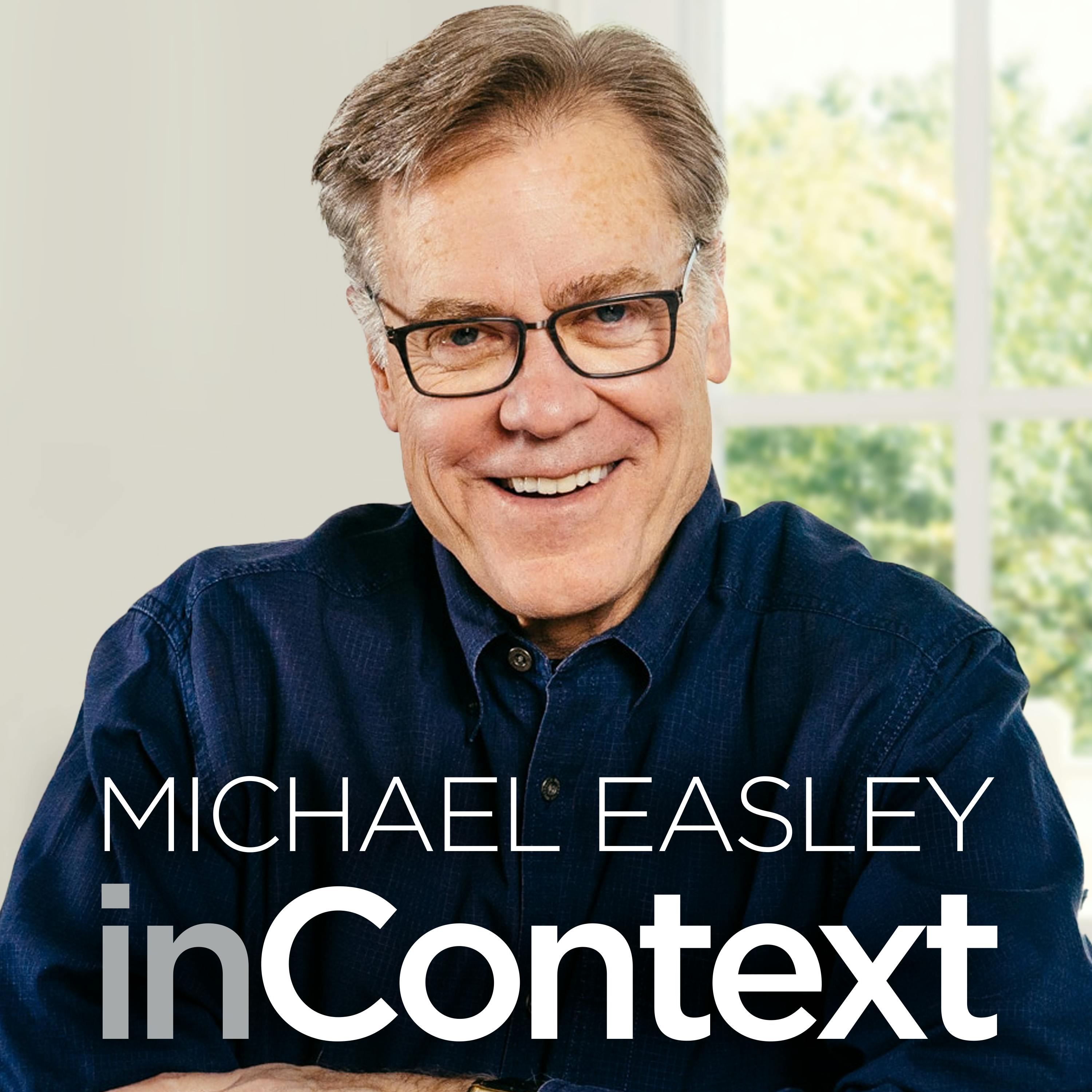
Michael Easley inContextThe Essential Scriptures with Dr. Kevin ZuberDr. Kevin Zuber joins Michael to discuss his book, The Essential Scriptures, and how to better understand theology.Links Mentioned:The Essential Scriptures by Kevin ZuberMajor Bible Themes by Lewis Sperry Chafer and John F. WalvoordChristian Theology by Millard J, EricksonThe Moody Handbook of Theology by Paul EnnsBasic Theology by Charles C. RyrieTo read the full show notes, click here.
2023-06-1341 min
The Steadfast PodcastTheology Explainer: SalvationOn this week's episode we take a dive into the doctrine of salvation. Through the Gospel of Jesus Christ God does so much in you and for you. I think you'll be surprised by how far the salvation of Jesus actually goes!Systematic Theology Books1. A Theology for the Church edited by Daniel L. Akin2. Systematic Theology: An introduction to biblical doctrine by Wayne Grudem3. Christian Theology by Millard J. Erickson
2023-06-0530 min
The Steadfast PodcastTheology Explainer: SalvationOn this week's episode we take a dive into the doctrine of salvation. Through the Gospel of Jesus Christ God does so much in you and for you. I think you'll be surprised by how far the salvation of Jesus actually goes!Systematic Theology Books1. A Theology for the Church edited by Daniel L. Akin2. Systematic Theology: An introduction to biblical doctrine by Wayne Grudem3. Christian Theology by Millard J. Erickson
2023-06-0530 min
Wahn und SinnLGBTQIA+ in Bibel, Kirche und Gesellschaft (Diversity 3/3)Wie geht die Gesellschaft mit sexueller Vielfalt um - und wie die Kirche? Was ist daran begrüßenswert, was zu hinterfragen? Was sagt die Bibel dazu? In dieser Folge sprechen Dr. Bernhard Olpen und David Koontz über dieses große Thema unserer Zeit. Wie sollten Christen mit der LGBTQIA+ Bewegung umgehen, wie mit den einzelnen Menschen? Dabei präzisieren die beiden ihre Aussagen aus der letzten Folge, werfen einen Interdisziplinären Blick auf die Themen und gehen auch auf die Praxis ein. Homosexualität und Transsexualität werden thematisiert, philosophische Konzepte angeschnitten und ein seelsorgerlicher Aspekt in den Blick genommen...
2023-05-241h 04
Shadowcast RadioHot Almonds, Dog Personalities & Book RecommendationsSend us a textIn this episode, the hosts go in a circle and share some of their favorite books, which literary genres span from Theology to Autobiography and even Children's Fiction. See below the list of books recommended in this show: Christian Theology by Millard J. EricksonThe Wingfeather Saga Series by Andrew PetersonTruth & Grace Memory Book 1 by Thomas K. AscolThe Risen Jesus & Future Hope by Gary R. HabermasBandersnatch by Diana Pavlac Glyer A Different Shade of Green by Dr. Gordon WilsonThe Screwtape Letters by...
2023-03-0243 min
Breaking WallsBW - EP132—012: Mutual Mystery Shows Of The 1940s—Looking Ahead To ThanksgivingWe’re going to stop here, but we’re not even close to finishing with I Love A Mystery. Next time on Breaking Walls, while we spend Thanksgiving with Carlton E. Morse, Russell Thorson, Jim Boles, and Tony Randall, we utter a simple statement: Bury Your Dead, Arizona.
The reading material used in this episode was:
American Radio Networks: A History — By Jim Cox
On the Air — By John Dunning
Network Radio Ratings — By Jim Ramsburg
The Museum of Broadcast Communications Encyclopedia of Radio — By Christopher Sterling
WOR: The First Sixty Years
As well as articles from the archives of
• The Los Angele...
2022-10-2805 min
Breaking Walls: The Podcast on the History of American Network Radio BroadcastingBW - EP132—012: Mutual Mystery Shows Of The 1940s—Looking Ahead To ThanksgivingWe’re going to stop here, but we’re not even close to finishing with I Love A Mystery. Next time on Breaking Walls, while we spend Thanksgiving with Carlton E. Morse, Russell Thorson, Jim Boles, and Tony Randall, we utter a simple statement: Bury Your Dead, Arizona.
The reading material used in this episode was:
American Radio Networks: A History — By Jim Cox
On the Air — By John Dunning
Network Radio Ratings — By Jim Ramsburg
The Museum of Broadcast Communications Encyclopedia of Radio — By Christopher Sterling
WOR: The First Sixty Years
As well as articles from the archives of
• The Los Angele...
2022-10-2805 min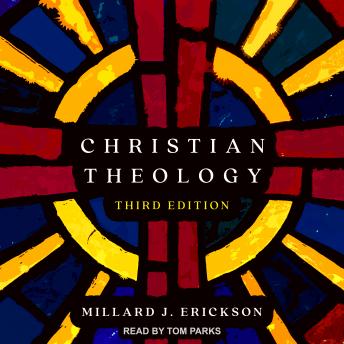
Unlock This Ground-Breaking Full Audiobook And Feel The Difference.Christian Theology 3rd Edition by Millard J. EricksonPlease visithttps://thebookvoice.com/podcasts/1/audiobook/584835to listen full audiobooks.
Title: Christian Theology 3rd Edition
Author: Millard J. Erickson
Narrator: Tom Parks
Format: Unabridged Audiobook
Length: 63 hours 0 minutes
Release date: June 28, 2022
Genres: Christianity
Publisher's Summary:
Leading evangelical scholar Millard Erickson offers a new edition of his bestselling textbook, now substantially updated and revised throughout. This edition takes into account feedback from professors and students and reflects current theological conversations, with added material on the atonement, justification, and divine foreknowledge. Erickson's comprehensive introduction is biblical, contemporary, moderate, and fair to various positions, and it applies doctrine to Christian life and ministry.
2022-06-283h 00
Discover Top Full Audiobooks in Religion & Spirituality, ChristianityChristian Theology 3rd Edition by Millard J. EricksonPlease visithttps://thebookvoice.com/podcasts/1/audiobook/584835to listen full audiobooks.
Title: Christian Theology 3rd Edition
Author: Millard J. Erickson
Narrator: Tom Parks
Format: Unabridged Audiobook
Length: 63 hours 0 minutes
Release date: June 28, 2022
Genres: Christianity
Publisher's Summary:
Leading evangelical scholar Millard Erickson offers a new edition of his bestselling textbook, now substantially updated and revised throughout. This edition takes into account feedback from professors and students and reflects current theological conversations, with added material on the atonement, justification, and divine foreknowledge. Erickson's comprehensive introduction is biblical, contemporary, moderate, and fair to various positions, and it applies doctrine to Christian life and ministry.
2022-06-283h 00
Coffee HourEP6 – 30,000 ft. Overview of Systematic TheologyIn this episode, Travis and Charles answer a listener question to discuss a vast overview of systematic theology and the importance of knowing God. We take a brief look at the book Christian Theology by Millard Erickson, and breakdown some of the parts of that particular text. We've included a link to the book below in case you are interested in picking it up for yourself.
Millard Erickson's Systematic Theology
We've been getting great response from you, the listener, with questions for us to discuss. We've been mapping those questions out and plan to start recording sessions real so...
2022-03-0900 min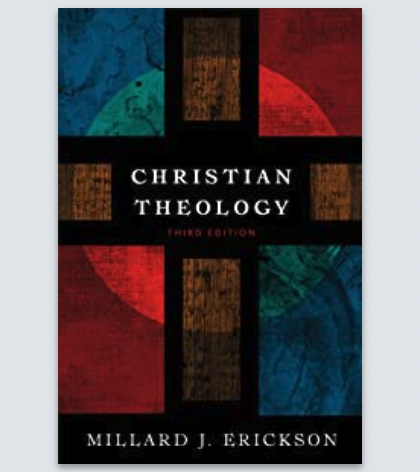
TTC textbook readingsTTC Theology1 - Erickson ch 12: The Goodness of GodMillard J. Erickson, \"Christian Theology\" ch 12: The Goodness of God.
2021-10-301h 05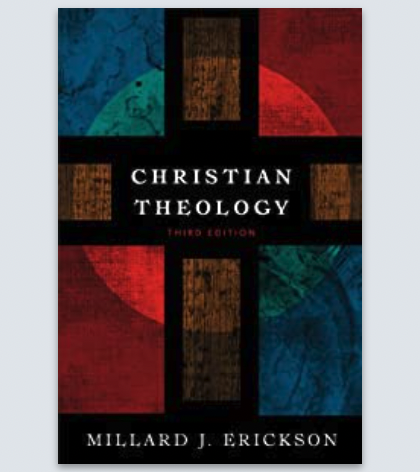
TTC textbook readingsTTC Theology1 Erickson ch 11 - The Greatness of GodMillard J. Erickson, \"Christian Theology\" ch 11: The Greatness of God.
2021-10-291h 08GodisOpenm048 Responding to Millard Erickson on Genesis 6m048 Responding to Millard Erickson on Genesis 6 by Christopher Fisher
2021-07-1614 minGodisOpenm046 Millard Erickson on Adding Years to Hezekiah's Lifem046 Millard Erickson on Adding Years to Hezekiah's Life by Christopher Fisher
2021-07-1620 min
Thinking Christianly#4: Should We Return To “In-Person” Church?As COVID restrictions are being lifted in the U.S., we are once again able to attend church in person. However, after twelve to eighteen months participating in church services online, many believers are wondering if they should return, or just continue attending online services. JP and Stan discuss some of the reasons many are asking this question, which leads them to discuss what the church is and why it exists. Principles are identified and conclusions drawn concerning if and how believers should understand church involvement.
More specifically, in this podcast we discuss:
Challenges l...
2021-07-1555 min
Everything Else with Nick Steward76: The Intermediate State with Nick QuientGood friend of the show, Nick Quient, spends about an hour discussing the concepts of the intermediate state and the soul
Link to Nick’s book, The Perfection of Our Faithful Wills: https://www.christianbook.com/the-perfection-of-our-faithful-wills/nicholas-quient/9781532656231/pd/656235?event=AFF&p=1216249
Nick Quient recommended these books:
Millard Erickson’s Christian Theology: https://www.christianbook.com/christian-theology-third-edition-millard-erickson/9780801036439/pd/036439?event=AFF&p=1216249
Michael Bird’s Evangelical Theology: https://www.christianbook.com/evangelical-theology-biblical-and-systematic-introduction/michael-bird/9780310494416/pd/494416?event=AFF&p=1216249
Louis Berkhof’s Systematic Theology: https://www.christianbook.com/systematic...
2021-07-131h 03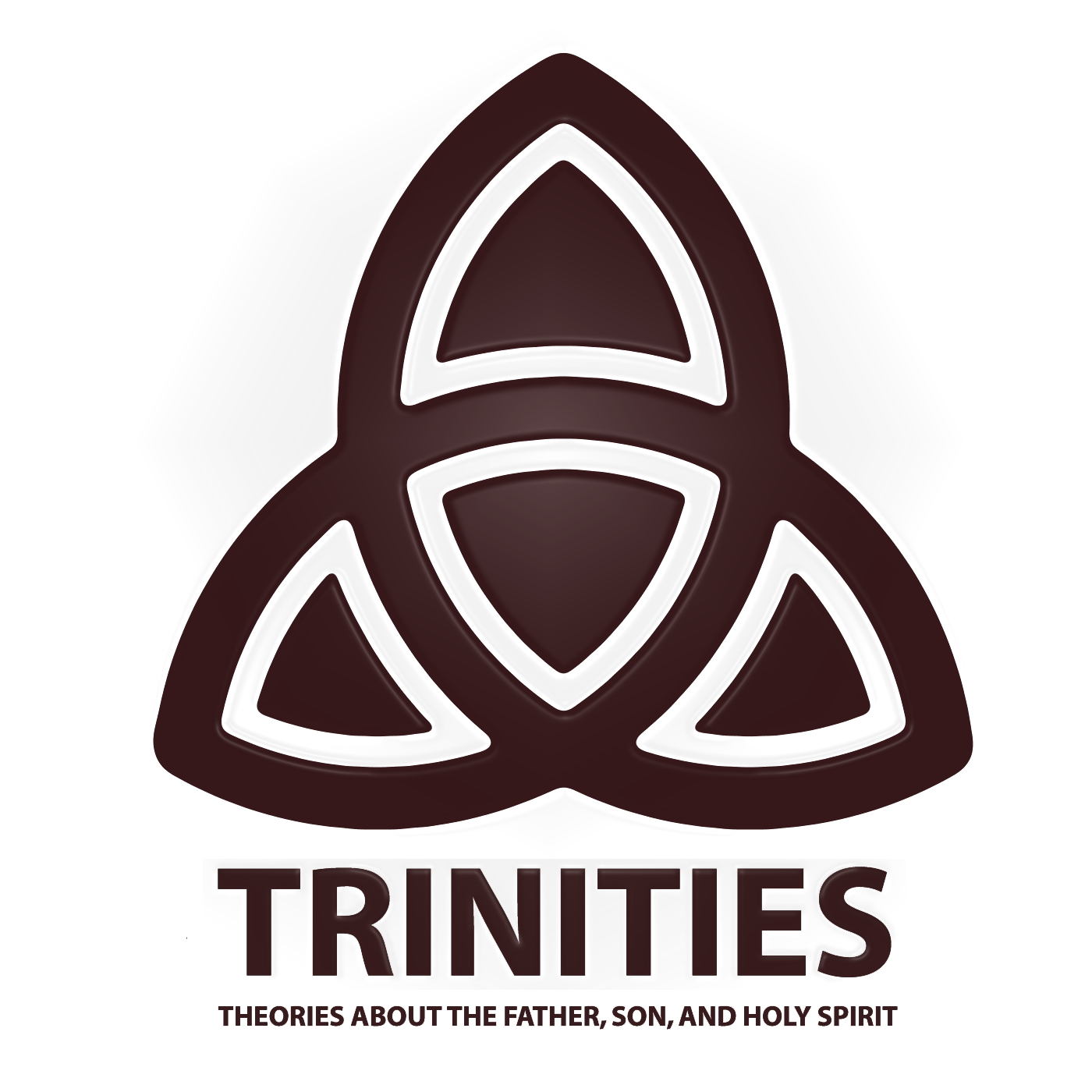
Trinitiespodcast 322 – Review of Erickson’s Making Sense of the Trinity
In this episode, my review of Dr. Millard Erickson’s Making Sense of the Trinity. How many questions about “the Trinity” does this short and often-recommended book clearly answer? The author is very learned, and is not afraid to admit some difficult points for trinitarians, for example:
[The doctrine of the Trinity] does not appear to be taught in Scripture, which is the Christian’s supreme authority in faith and practice. And it presents an obstacle to faith for those who otherwise might be inclined to accept the Christian faith.
Making Sense of the Trinity, p. 13
2021-03-091h 06